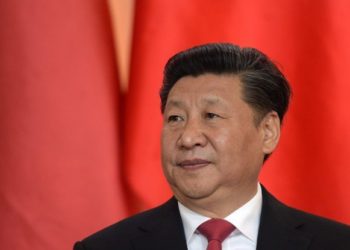Homosexuality was decriminalized in China in 1997, and in 2001 the Chinese Society of Psychiatry removed it from the official list of mental disorders. Still, same-sex marriage is not legal and members of Chinese LGBTQ+ (an acronym meaning lesbian, gay, bisexual, transgender, queer/questioning, and others) community face various types of discrimination. In the recent years, however, the Chinese “pink economy” has seen remarkable growth. One component of this is LGBTQ+ tourism, which is also on the rise. The question of whether these developments can translate into greater freedom for the Chinese LGBTQ+ community remains open.
The first travel agency catering to the gay community, Blue Ribbon, opened in China in 2008. Since then the number of such agencies has surged as, along with the rise in the average income in China, the number of LGBTQ+ people who can afford to travel abroad has increased in the last 10 years.
According to a 2016 survey of more than 20,000 people conducted by the Shanghai-based nonprofit business network WorkForLGBT in cooperation with more than 20 Chinese LGBT groups and companies, around 30 percent of Chinese LGBTQ+ people traveled abroad, marking a 10 percent increase from the previous year.
The survey was quoted by government-controlled Chinese outlet Sixth Tone in its recent piece about the state of gay tourism in China. The article told the stories of two Chinese LGBTQ+ travel agencies, Blue Ribbon and Cuke. Chinese LGBTQ+ tourism was portrayed as a thriving industry, valued at $5.7 billion. The most popular travel destinations included Thailand, Hong Kong and Taiwan, but in recent years an increasing number of Chinese LGBTQ+ tourists have also traveled to more expensive and less popular destinations in the West, such as Spain and the United States.
“LGBTQ+ travel agencies have been around in China for at least a decade or so, but the last few years have seen a noticeable expansion. It’s not just in terms of number either, but also the kinds of services on offer, ranging from cheap and cheerful getaways to luxury package holidays,” Séagh Kehoe, a doctoral student at the University of Nottingham in the United Kingdom, told The Globe Post.
The growth in the number of tourists masks the situation for LGBTQ+ Chinese in other areas. Many members of the gay community in China still face discrimination and various other obstacles that prevent them from traveling abroad.
“Certainly not everyone has the money to travel abroad. For others, like Tibetans, Uyghurs and prominent dissidents and activists, it can be very difficult to obtain and keep a passport. For many trans people, intrusive questioning or difficulties at passport control can be really off-putting,” Séagh Kehoe said.
Although the number of LGBTQ+ travel agencies is growing, they cannot operate openly. One of the co-founders of the Cuke travel agency produces a Chinese travel program on a satellite television channel, but he can not share LGBTQ+-related content on the program as it would violate broadcasting guidelines that explicitly prohibit the depiction of homosexuality.
Censorship may also explain why there are no LGBTQ+ travel bloggers on Chinese social media, and why the travel agencies’ websites are hard to find. It is telling that Blue Ribbon, the oldest and most prominent travel agency of its kind in China, does not use a Chinese domain name and has only about 300 followers on the Chinese social network QQ, which itself has about 860 million monthly active users. Jing Travel notes that Chinese travel agencies catering to the gay community still operate in a legal gray area, explaining that people learn about trips by contacting the organizers directly. To do this, they must already be members of private chat groups on the messaging app WeChat.
The Globe Post contacted a number of Chinese LGBTQ+ travel agencies – including Qmeet, Glow Travel and China Mango – via email and through WeChat for this story, but none of them replied.
Although the “pink economy” in China is growing, it is too early to be optimistic about the prospects for the Chinese LGBTQ+ community. A recent Human Rights Watch report revealed that despite homosexuality not being regarded a mental disorder in China, “conversion therapy” is still conducted in both public hospitals and private clinics.
In addition to legal restrictions and homophobia, members of the Chinese gay community also face medical hurdles. A recent Beijing LGBT Center and Peking University Sociology Department survey found that only 6 percent of transgender people in China are satisfied with the domestic provision of hormone therapy services while only 2 percent felt there were enough medical resources for sex reassignment surgeries.
“Some might look at the rise of China’s ‘pink economy’ as a form of progress, but it’s always the question of progress for whom. It’s likely doing very little for the most vulnerable LGBTQ people who do not have the means to participate,” Séagh Kehoe said.
“We might also ask whether the strength of the ‘pink economy; will translate into mobilization for political rights, such as pushing for anti-discrimination law and other legal protections and even marriage equality, or whether the party-state is only interested in tolerating LGBTQ+ people in a very limited sense as long as they are making and spending money.”
While there are a number of nongovernmental organizations that promote the rights of the Chinese gay community, and the number of “pink economy” services is growing, they still have to operate in the gray area.
With the active promotion of traditional family values by President Xi Jingping, crackdowns on queer content online, a general lack of legal protection and access to medical services that satisfy their needs, the future of LGBTQ+ people in China currently does not look bright. Still, the fact that “pink economy” services are allowed to operate in China and government-controlled media outlets have started to cover problems that gay and transgender people face mark a shift in state policies towards the LGBTQ+ community. Whether it will eventually translate into greater freedoms for the community remains unclear.






















